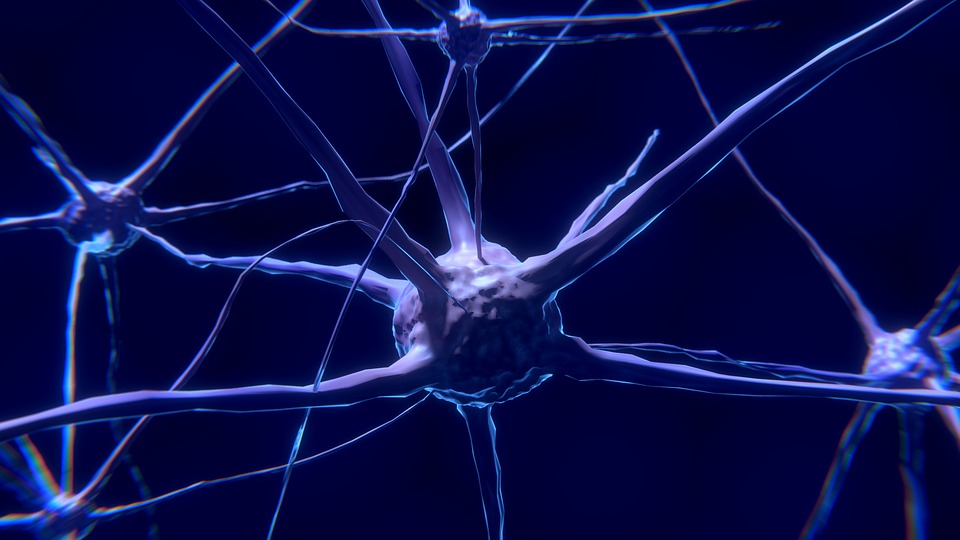Symptoms of Nerve Damage You Must Know
Our body contains millions of nerves which are spread throughout our body parts in an organized and sophisticated manner. These nerves have various functions, and our brain is connected to our entire body with the help of these nerves. Our nervous system consists of two main components, central nervous system, and peripheral nervous system. The central nervous system is concentrated within our skull while the peripheral nervous system is spread throughout our body. Both of them are very important. Damage to our central nervous system can cause severe symptoms and medical conditions, while damage to the peripheral nervous system can cause mild to moderate symptoms which are sometimes left unnoticed.

Image Source : https://pixabay.com
These nerves, however, are still very important, as they are the reason we can move, breathe, eat, and carry out all the everyday activities properly. A damage to these nerves can induce pain or it can simply cause involuntary movement of our muscles, twitching, and difficulty in mobility. Since the damage to these nerves occurs gradually, we have a great chance to notice it before it’s too late and do something about it.
Therefore, here are some of the surprising symptoms that indicate that you might have nerve damage. They shouldn’t be taken lightly and something should be done about it :
- Lethargy
If you’re feeling tired all the time for no reason and experience difficulty in gathering enough energy to carry out everyday tasks, then this is something to worry about. Although it could be due to several other reasons, lack of energy and exhaustion in combination with other symptoms could be a serious sign of nerve damage. - Twitching
Muscular twitching could be an indication of nerve damage, as our nerves are responsible for receiving signals and making our muscles move. When your muscles start twitching involuntary, the nerve function is not taking place properly, indicating a possibility of nerve damage. The twitching can occur in the eye area, lip, cheek or any other part of our body. - Involuntary movement of muscles
If you find yourself moving any part of your body involuntary, it could be an indication of nerve damage. The condition somewhat resembles the symptoms of Tourette’s Syndrome, a neuropsychiatric disorder in which the patient could experience multiple and continuous motor and vocal tics. Nerve damage may not have vocal tics, but physical and motor tics could be there. - The uncomfortable strain on muscles
If you don’t find yourself moving involuntary, you may feel some kind of strain or pressure on your muscles, including your upper back, arms, chest, or facial muscles, where you feel the need to continuously move and fix that uncomfortable feeling. Patients usually find it extremely difficult to not move on the onset of this muscular strain, making them look almost like they’re moving involuntary. - Clumsiness
If you feel excessively clumsy and awkward, experience difficulty in walking, or unable to control your body posture, this could be an indication of nerve damage. - A headache
The headaches could occur at unusual times, without notice for short periods. The pain could feel like throbbing shocks, causing a condition which is sometimes referred to as occipital neuralgia. It can occur due to the pinching of the nerves in our neck area. - Leg pain
Usually, the leg pain occurs for no reason at all and it mostly runs down only one of either legs. The pain could be accompanied by numbness and burning sensation. There are several causes of leg pain, such as sciatica. However, this could occur when you can’t think of any causes of the pain. - Tingling, burning
If you often get burning of tingling sensation without any apparent physical cause, there is a good chance of nerve damage. - Numbing
The numbing sensation could occur without any reason at any occasion. The condition could be so severe that the patient finds it impossible to walk. Sometimes the patients could feel difficulty in moving their bodies. - Stress
Stress and depression aren’t only the symptoms of nerve damage, they are also the most important cause of nerve damage. This could go a long way in terms of damaging your nervous system as depression can directly affect our brain and nerves. - The need to go
If you feel the need to go to the loo several times a day which short gaps, there is a chance that you may have nerve damage. There are people who feel the need for number 2 several times a day, and some people can experience frequent urination.
Conclusion
These symptoms could sometimes be temporary due to some other medical condition. However, in case of chronic symptoms, or if the signs appear persistently you must get yourself checked and diagnosed by a specialist. Although the nerve damage is a slow, gradual process, if it’s not taken seriously it could develop into very serious conditions in the long run.
Disclaimer
Please note that individual results will vary from person to person. All and any information and statements contained in this article are not intended to replace your doctor’s advice or treatment. We do not provide medical advice, prescription, or diagnose illness. Therefore, our views and nutritional statements are not intended to replace your doctor’s medical advice. If you have a health concern or condition, see your doctor before starting anything on your own.
To listen to the audio version of this article click on the play image.

Brought to you by @tts. If you find it useful please consider upvote this reply.
Thanks @steemheathcare. What in the case of autism, what can be the main nerve degenerated.
thank you this is very used fully for my culture!
Excellent information. Nerve damage is much more common than people think.